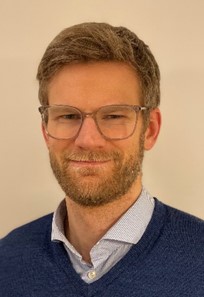Due to copyright issues, an electronic copy of the thesis must be ordered from the faculty. For the faculty to have time to process the order, the order must be received by the faculty at the latest 2 days before the public defence. Orders received later than 2 days before the defence will not be processed. After the public defence, please address any inquiries regarding the thesis to the candidate.
Trial Lecture – time and place
See Trial Lecture.
Adjudication committee
- First opponent: Associate Professor Lina Maria Ellegård, Kristianstad University, Sweden
- Second opponent: Researcher Kjartan Sarheim Anthun, NTNU - Norwegian University of Science and Technology, Norway
- Third member and chair of the evaluation committee: Researcher Signe Flottorp, Faculty of Medicine, University of Oslo
Chair of the Defence
Professor Erik Lønnmark Werner, University of Oslo
Principal Supervisor
Professor Oddvar Martin Kaarbøe, University of Oslo and University of Bergen
Summary
In many countries, general practitioners (GPs) play a fundamental role in primary healthcare services. Owing to their prominent role in healthcare, the increasing difficulty many Nordic countries experience in recruiting and retaining GPs is alarming. To meet increased patient demand, policymakers must understand how to use their limited resources to increase the supply of GP services. To help advance the evidence base, we investigate how incentives and interventions affects service provision, resource use and turnover amongst GPs.
Using experiments, theory, and analysis of large datasets, we show that general practitioners are influenced by economic conditions; both in terms of the services they offer, how much they work, how they code treatments, and whether earnings affect the likelihood of quitting.
In Paper 1, we develop a theoretical model to predict how different remuneration schemes and policy measures affect GP effort and the profession’s overall attractiveness. The results show that none of the remuneration schemes increase both the profession’s attractiveness and GPs’ effort levels. We propose that improving working conditions is the only policy unequivocally positive for both these outcomes. In Paper 2, we empirically investigate the sources of earnings differentials and whether these translate into quitting decisions. Using registry data, we find that a 1% increase in income per consultation results in a one-percentage point reduction in the likelihood of quitting. We hypothesise that the sources of earnings differentials are higher effort and better system familiarity. In Article 3, we estimate the effect of an information campaign regarding the appropriate use of a double-consultation fee. We find that the campaign results in a 4–5 percentage point reduction in the use of such fees. In Article 4, we perform a field experiment using a nudging campaign to increase annual checkup attendance for people with type 2 diabetes. We find that sending an emails and SMS leads to a 4% increase in attendance.
Overall, our findings suggest that there is no silver bullet; financing systems that induce effort are unattractive to some doctors and more prone to opportunistic behaviour. The changing composition of GPs also reflects different preferences for organisational form, suggesting that a larger suite of contractual arrangements should be offered. Regardless, non-financial interventions will be necessary to ensure timely access to services and maintain collective trust in the system.
Additional information
Contact the research support staff.
